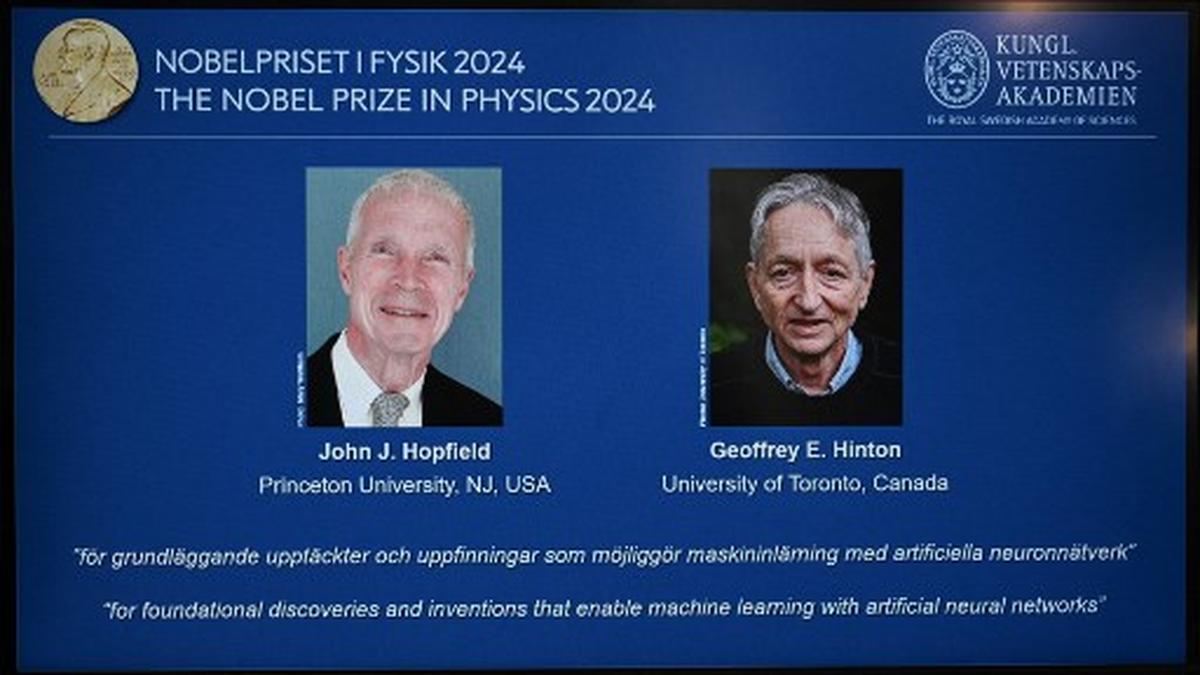Arish Mujawar, Pune
The 2024 Nobel Prize in Physics was awarded on Tuesday to American scientist John Hopfield and British-Canadian scientist Geoffrey Hinton for their machine learning discoveries and innovations, which helped to spark the rise of artificial intelligence.
The new technology the pair worked on, which is hailed for its revolutionary potential in fields like cutting-edge scientific discoveries and more effective administrative tasks, has also sparked concerns that humanity may soon be outclassed and outcompeted by its own invention.
As the man who is primarily credited with being the founder of artificial intelligence, Hinton made news last year when he resigned from his position at Google (GOOGL.O) and opened a new tab to discuss the risks associated with the technology he built.
Hinton told the Nobel press conference over the phone from a Californian hotel, “We have no experience of what it’s like to have things smarter than ourselves.”
“It’s going to be wonderful in many respects, in areas like healthcare,” Hinton commented. Still, there are a lot of negative outcomes that we may have to worry about. mostly the risk that these things would spiral out of hand.”
The prize is given by the Royal Swedish Academy of Sciences, which states that Hopfield, 91, an emeritus professor at Princeton University, created an associative memory that can reconstruct and preserve patterns in data, including images.
“The two Nobel Laureates in Physics this year have developed techniques that form the basis of today’s potent machine learning using tools from physics,” the Institute of Physics stated in a statement.
These days, artificial neural network-based machine learning is transforming daily life, research, and engineering.”
Each of the two winners will receive a part of the award’s 11 million Swedish crowns ($1.1 million).
Hinton, 76, a British-born professor emeritus at the University of Toronto, developed an algorithm that can independently detect particular parts in images and discover attributes in data, the academy said
Despite leaving Google in 2023, Hinton believed the firm behaved very responsibly. Hinton and other experts had predicted computers would surpass people in intelligence far sooner than they had.
Hinton acknowledged that he had made mistakes in some of his studies, but he nevertheless followed through with the plans he had in place.
“I would act in the same manner again under the same circumstances,” he said during the Nobel press conference. However, I worry that this could have the overall effect of creating systems that are eventually more intelligent than humans and seize control.
